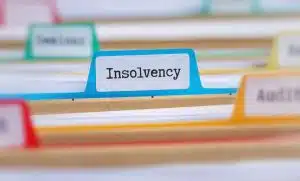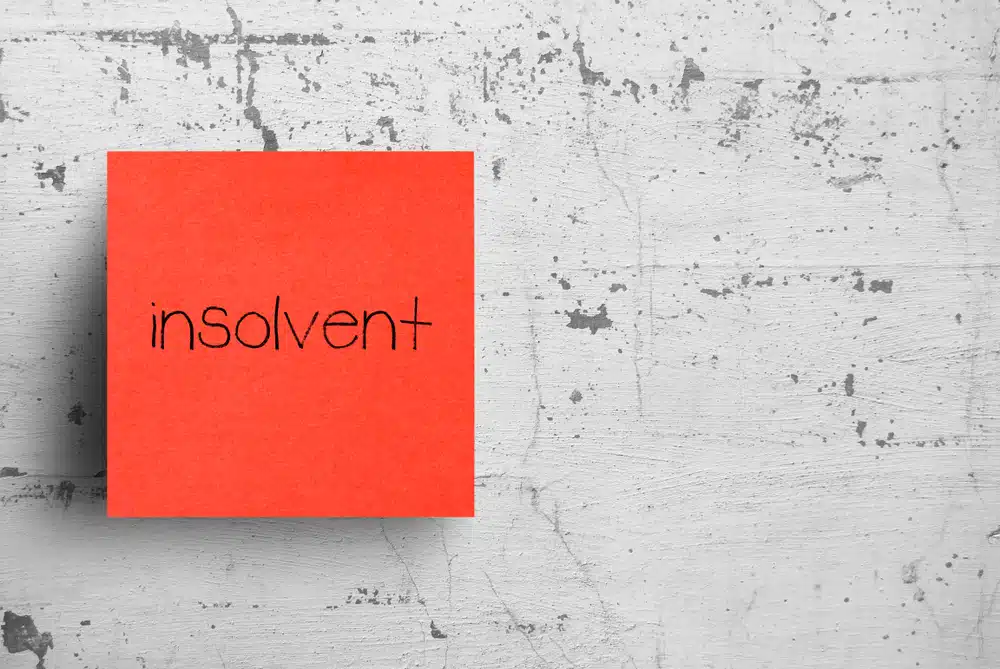 Every dental business owner who is experiencing financial difficulties should take insolvency advice for dental practises into consideration.
Every dental business owner who is experiencing financial difficulties should take insolvency advice for dental practises into consideration.
As a result of the COVID-19 pandemic, dental practices faced unparalleled challenges, which caused some to close their doors.
Despite NHS contracts and capitation schemes giving dental practices some robustness, balancing your practice’s long-term goals with your financial objectives is essential.
While many practices ‘survived’ the pandemic, many are not earning a significant profit, and many face insurmountable debt problems.
It is important not to think about your practice entirely from a worst-case scenario if that is the case. You can still operate your practice after insolvency, despite it not being an ideal situation.
What is insolvency?
Insolvency occurs when a business is unable to pay its debts. A person who is insolvent has more debt than liabilities and is unable to pay their bills on time. Action is needed here. You can be forced into compulsory liquidation if you do not pay your debts. To repay your creditors, or to extend your terms of payment, you must take action. The process can be accomplished in a number of ways, including by seeking specialist dental financing.
The NHS must be notified if a practice is unable to repay debts or is facing bankruptcy. If your contract is terminated or sanctions are imposed, the NHS can terminate it.
Your corporate structure and insolvency
Dentists usually work as sole traders, in partnerships, or as limited companies. All positions must pay their debts or face insolvency, regardless of the pressures they face.
Sole traders
Due to their personal liability for business debt, sole traders are more exposed to debt. The company could face bankruptcy if it cannot repay the loan. In dental practices with only one practitioner, sole tradership is somewhat common so that you are able to make changes in business directions without any complications or discussions – such as switching from NHS to private practice. As a sole proprietor, however, you run a greater risk of bankruptcy than you would as a corporation.
Partnerships
Partnerships between dentists often involve the sharing of profits between two practitioners. Since you rarely work the same hours, you may instead opt to share expenses instead of trading together and dividing profits.
A surgery expense share involves sharing surgery costs and expenses but maintaining separate earnings. Business debts remain available in both cases.
If you want to operate in a partnership without running the risk of bankruptcy, a limited liability partnership is likely the best option.
Limited company
Due to the fact that a limited company is independent from its owner, it is not liable for any losses incurred by the company. When running a limited company, tax and finances are much more flexible, but you will probably need an accountant to keep track of your responsibilities.
As a result, different roles are affected by insolvency in different ways:
- Sole traders can become bankrupt as they’re personally responsible for the debt.
- Unless in a limited liability partnership, members in partnerships are also personally liable.
- Limited companies treat debts separately, and you are not personally liable.
Steps you can take
Here are a few of the processes you can go through when facing insolvency.
Administration
To save your business, you will usually need to enter administration, sell off your assets, or reorganise. Some practices must instead sell the company to a buyer who agrees to pay off your debts for a low asking price for the company itself. Since NHS contracts cannot be sold on, some practices have no choice but to sell the company to a buyer who agrees to pay off your debts. A private practice can also be sold, but buyers may not accept liability for your debts, so you’ll have to sell your business’ goodwill and history and then use the proceeds to repay your creditors.
Time to pay arrangements
Debts to HMRC are subject to time-to-pay arrangements based on your position and business structure. The disposable income of sole traders, for example, will be considered when assessing their eligibility.
CVA and IVAs
Recovery can be helped by an insolvency practitioner – but you do not have to choose one. It is only limited companies and limited liability partnerships who can apply for Company Voluntary Arrangements (CVA). Your debtors are offered a CVA in exchange for a repayment schedule you can offer, which must be approved by the creditor.
An insolvency practitioner can assist sole traders in obtaining Individual Voluntary Arrangements (IVAs). Creditors cannot take action against you in these cases, as they are similar to CVAs.
For a CVA or IVA to be effective, only creditors holding 75% of your debts must agree to its terms.
Finance
Refinancing debt can be a viable solution for dental practices that are facing insolvency. Refinancing debt involves obtaining new debt to pay off existing debt, usually at a lower interest rate or longer repayment term. This can help to reduce the financial burden of existing debt and free up cash flow, making it easier for the business to manage its finances and continue operating. Refinancing can also help to avoid more drastic measures, such as bankruptcy or liquidation.
However, refinancing is not always possible, and lenders may be hesitant to extend credit to businesses that are already struggling. It is important to seek professional advice and carefully consider all options before pursuing refinancing or any other debt management strategies. Ultimately, the goal should be to address the underlying issues that led to the financial difficulties and establish a sustainable financial plan for the future.
It may seem counterintuitive to add to your current debt, but often, the best way to avoid insolvency is to find a lender who understands your market and your financial situation.
Liquidation
Liquidation is the process of selling your assets and business in order to recoup the debts you owe. You have greater control over voluntary liquidation, but it should be done with the help of a specialist. You are unlikely to receive any proceeds from a standard corporate liquidation since all debtors must be paid first.
The General Dental Council will not affect your registration or fitness to practice following a bankruptcy or liquidation.
What to do if you’re facing insolvency
Many dentists may have to deal with insolvency at some point. The more serious ramifications of liquidation or bankruptcy can be avoided, however, if you work with your accountant before you become insolvent. You can try to sell your practice before you’re insolvent, which is one of the main alternatives. You’ll need a dedicated selling agent who can help you negotiate the best selling terms for your practice so that you are absolved of further responsibility.
If your business is struggling, you may want to consider arranging finance from a lender willing to assist you. Working with a specialist finance broker who can assist you in finding the right lender and maximise your application’s chances is critical if you want your practice to succeed.
Do your best not to let your business slip into bankruptcy or insolvency.
Conclusion
Insolvency advice for dental practices is an important consideration for any dental business owner who is struggling with financial difficulties. Seeking insolvency advice from a qualified professional can help a dental practice owner to understand their options for restructuring their business and managing their debts. This may involve exploring options such as voluntary administration or a formal insolvency process like liquidation or bankruptcy.
In some cases, it may be possible to negotiate with creditors and come to a repayment arrangement that allows the business to continue operating. Ultimately, seeking insolvency advice can help dental practices to avoid the potential negative consequences of financial distress, such as legal action and reputational damage, and work towards a more stable and sustainable financial future.
Lee Jones is a seasoned Business Finance Specialist with over two decades of invaluable experience in the financial sector. With a keen eye for market trends and a passion for helping businesses thrive, Lee has become a trusted advisor to countless organizations seeking to navigate the complexities of finance.


